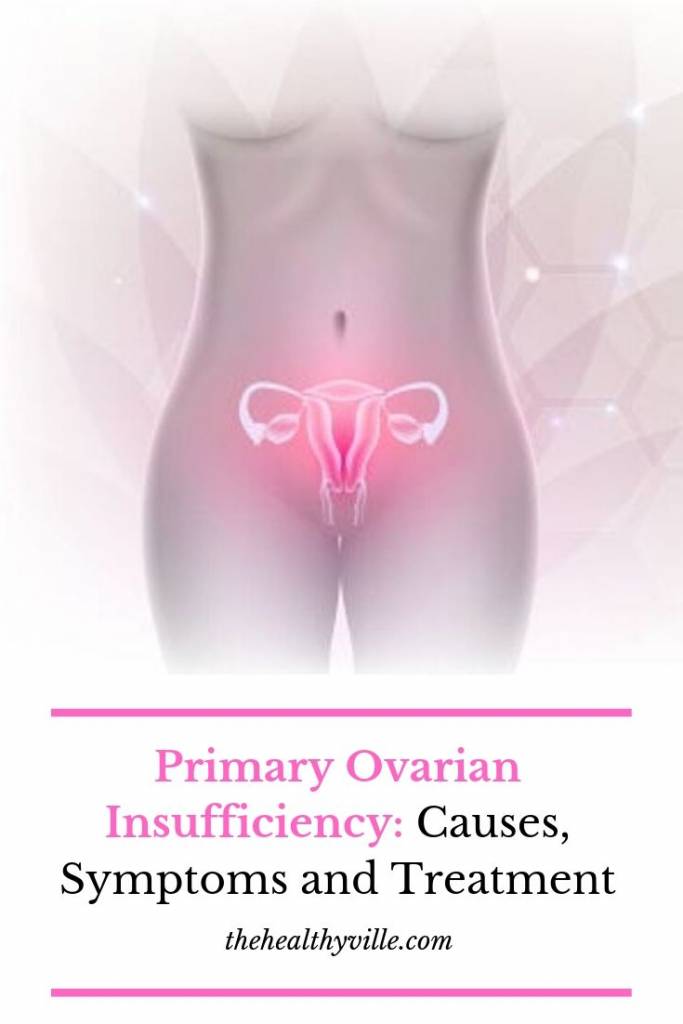Primary ovarian insufficiency, in principle, affects the possibility of having children, although this does not occur in all cases.
A woman with this anomaly must lead a healthy life, but also requires support. Sometimes the ovaries stop working normally before age 40. This anomaly is called primary ovarian failure, or premature ovarian failure. In the most extreme cases, this problem can even begin in adolescence.
Normally, women begin to be less fertile around the age of 40. At that age the first signs of menopause may appear, such as irregularity in the rules, hot flashes and similar symptoms. What is not normal is that all this takes place before that age.
Sometimes, people confuse primary ovarian insufficiency with premature menopause, but they are not the same. When there is early menopause, the woman’s menstrual periods stop before the age of 40 and there is no longer any chance of her becoming pregnant.
In contrast, in primary ovarian insufficiency the periods do not disappear altogether. The rule appears occasionally and, therefore, there is a possibility that the woman will become pregnant, even in that condition. Science does not know the reasons why this occurs, in most cases.
Causes of primary ovarian insufficiency
It is estimated that in 90% of cases it is impossible to establish what causes primary ovarian insufficiency. It is known that this anomaly is related to problems in the follicles, which are small sacs located inside the ovary. The eggs originate and develop within them.
Sometimes, the follicles cease to function completely before the age of 40 and, other times, they continue to function, but in a defective manner. This gives rise to primary ovarian insufficiency. Only in some cases this problem is related to any of the following causes:
- Small number of follicles.
- Autoimmune diseases.
- Genetic diseases.
- Metabolic disorders.
- Radiation therapy or chemotherapy.
- Presence of toxins due to smoking or exposure to pesticides and chemicals.
It is also known that there are some factors that predispose to primary ovarian insufficiency. These are:
- Family history: women in whose family have presented this type of anomalies are more prone.
- Genetic diseases: Primary ovarian insufficiency is more common in those with genetic diseases, such as Turner syndrome or fragile X syndrome.
- Concomitant diseases: particularly autoimmune diseases or viral infections.
- Cancer treatments.
- Age: it is more frequent in women between 35 and 40 years old, although it can occur at any age.
Symptoms and diagnosis
The symptoms of primary ovarian failure are similar to those of menopause. They include the following:
Irregularity in menstrual periods: this may appear after pregnancy, suspension of birth control pills or simply occur spontaneously for several years.
- Hot flushes.
- Night sweats.
- Trouble getting pregnant.
- Vaginal dryness.
- Reduction of sexual desire.
- Mood swings, difficulty concentrating and irritability.
In some cases, this anomaly generates some complications such as sterility, osteoporosis, heart disease, depression or anxiety. In the most extreme cases, dementias can occur. To make the diagnosis, an interview with the doctor is carried out and a pelvic examination is performed.
It is very common for tests such as pregnancy test, follicle stimulating hormone (FSH) test, estradiol test, prolactin test, karyotype and FMR1 gene analysis to be ordered.
Treatments
In general, treatment for primary ovarian insufficiency focuses on correcting the effects of estrogen deficiency. Therefore, it is common for the central measure to be estrogen therapy. Normally, to the administration of estrogen, doctors add progesterone, to protect the uterus.
With this therapy, there may be bleeding again, but the ovarian function cannot be recovered. In young women, the measure is usually very positive. In older women, there is evidence that it can give rise to cardiovascular problems. The doctor will assess the convenience of this type of therapy.
Another usual measure is to prescribe calcium and vitamin D supplements, mainly to prevent osteoporosis. One of the main difficulties for women is to face infertility early. Depending on the case, in vitro fertilization may be recommended.
A woman in these circumstances requires support and understanding. Having a partner is very important for emotional balance. Likewise, a psychological therapy could be convenient to better face the diagnosis and the consequences that this implies.
Don’t forget to SHARE the symptoms, causes and treatment for primary ovarian insufficiency with your friends and family on your social networks!

